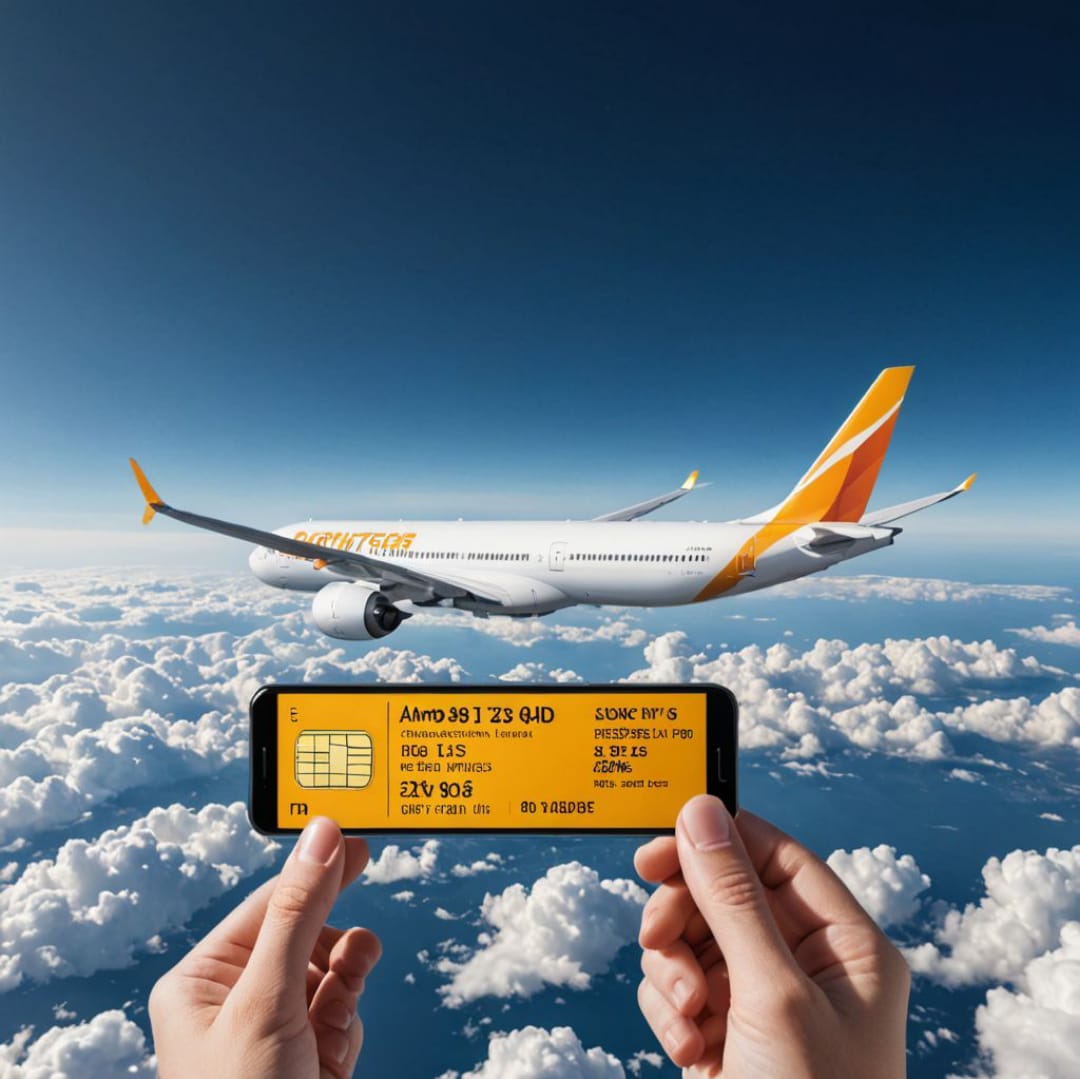The Netherlands, located in the heart of Europe, has become one of the top destinations for migrants seeking job opportunities abroad. Renowned for its attractive job market, the Netherlands welcomes skilled workers from around the globe, including those with specialized expertise. This country provides an ideal environment for individuals looking for career opportunities in diverse fields such as technology, engineering, healthcare, finance, education, and other industries that contribute significantly to the Dutch economy.
If you are considering working in the Netherlands, the first step is understanding how to obtain a Dutch work visa. This article provides a comprehensive guide to everything you need to know about a work visa for the Netherlands, from the types of available visas and application requirements to legal procedures and post-arrival steps.
We’ve previously discussed the French Schengen Work Visa. If you’re interested in that topic.
Types of Work Visas in the Netherlands
When considering working in the Netherlands, it's essential to know the types of work visas available. The Netherlands offers several visa categories depending on the nature of the job and contract. The most notable types include:
Highly Skilled Migrant Visa
The "Highly Skilled Migrant Visa" is one of the most popular options in the Netherlands. This visa aims to attract professionals specialized in fields like technology, engineering, healthcare, finance, and scientific research. The requirements for this visa include:
- Job Offer: You must have a job offer from a recognized Dutch employer.
- Minimum Salary Threshold: Your annual salary must meet a certain minimum, which varies based on your age and professional status.
- Academic Qualification: Your academic credentials should align with the job you are applying for.
EU Blue Card
If you are a non-EU national working in a specialized profession, the EU Blue Card might be a suitable option. This visa is designed for highly qualified individuals in fields like engineering and healthcare. Key benefits include:
- Mobility: After working in the Netherlands for a specified period, you can move freely within other EU countries.
- High Salary: Your salary must exceed the minimum threshold set by the Netherlands for specialized professions.
- Eligibility: Applicants from many non-EU countries can apply for this visa.
Seasonal Worker Visa 56
If you plan to work in seasonal industries such as agriculture or tourism, you can apply for a Seasonal Worker Visa. This visa allows you to work in the Netherlands for a limited period during a specific season.
- Duration: Typically valid for 3 to 6 months.
- Requirements: You must provide a seasonal employment contract from a Dutch employer.
Self-Employment Visa
For those planning to start their own business in the Netherlands, a Self-Employment Visa is an option. This visa is ideal for investors and small business owners. To qualify, you must meet several criteria, such as:
Innovative Project: Your business must have clear economic value.
Financial Capability: You must prove your financial ability to live and work in the Netherlands.
Temporary Work Visa
This visa is designed for workers engaged in short-term projects or temporary employment with Dutch companies. If you plan to work in the Netherlands for a limited period, this visa allows you to stay and work for a specified duration.
Requirements for Applying for a Dutch Work Visa
Securing a Dutch work visa involves a series of legal steps and requirements. Here are the basic prerequisites:
A. Employment Contract
You need a signed employment contract with a recognized Dutch employer. The contract must outline job details, salary, and the duration of employment.
B. Proof of Qualifications
You must provide evidence of your academic and professional qualifications, such as university degrees, certificates of experience, or training diplomas. Your qualifications should align with the job requirements in the Netherlands.
C. Financial Proof
You must demonstrate your financial capability to support yourself during your stay in the Netherlands. Typically, this involves submitting bank statements or proof of income.
D. Health Insurance
A comprehensive health insurance policy covering your stay in the Netherlands is mandatory for a work visa application.
E. Visa Fees
You are required to pay visa processing fees, which vary depending on the visa type. The fees typically range between €250 and €600.
How to Apply for a Dutch Work Visa
Applying for a work visa in the Netherlands requires following specific steps:
A. Determine the Visa Type
The first step is to identify the type of visa you need based on your job or project. For instance, highly skilled workers require the "Highly Skilled Migrant Visa," while freelancers apply for the "Self-Employment Visa."
B. Submit the Application
Applications can be submitted online or through the Dutch consulate in your home country. Complete the application form and provide all necessary documents.
C. Attend the Interview
In some cases, the Dutch consulate may request an interview to verify your information and qualifications.
D. Wait for the Decision
Visa processing typically takes 4 to 12 weeks. Upon approval, you will receive your visa via mail or be asked to collect it from the consulate.
What to Do After Arriving in the Netherlands
Once you’ve obtained your Dutch work visa and entered the country, there are several steps to complete:
A. Register with the Municipality (Gemeente)
You must register with the local municipality within five days of arrival. This registration provides you with a Citizen Service Number (BSN) required for taxes, social insurance, and other official matters.
B. Open a Dutch Bank Account
Opening a Dutch bank account is essential for receiving your salary and paying bills. Banks may require additional documents to verify your identity and address.
C. Obtain Health Insurance
Long-term residents must acquire Dutch health insurance, which is mandatory for all residents.
D. Secure Accommodation
Find suitable housing in the Netherlands. Costs depend on the city and region, so consider proximity to your workplace.
Job Opportunities in the Netherlands
The Netherlands offers vast opportunities for migrants across various industries. Some sectors with high demand include:
- Information Technology: One of Europe’s largest IT markets.
- Healthcare: High demand for doctors and nurses in many Dutch cities.
- Engineering: Especially in civil, electrical, and mechanical fields.
- Finance: A leading financial hub in Europe.
Working in the Netherlands begins with securing the right work visa. Once you’ve obtained your visa, you can enjoy the numerous job opportunities the country offers across multiple industries. The Netherlands stands out as one of Europe’s most attractive destinations for skilled workers, providing a flexible work environment, a multicultural society, and social benefits like health insurance and retirement perks. The country’s reasonable taxes and developmental opportunities make it an ideal choice for professionals worldwide.
Challenges You May Face When Working in the Netherlands
While the Netherlands is an attractive destination for work, you should be aware of some challenges you may encounter during your career there:
a. Learning Dutch
Although most Dutch people are fluent in English, learning Dutch can be extremely beneficial, especially in work environments where some companies prefer using Dutch for daily communication. This is particularly useful if you work in a field that requires interaction with local clients or if you wish to better integrate into Dutch society.
b. Organizational Culture and Work Environment
The Netherlands has a professional and democratic work culture that values employee contributions and encourages participation in decision-making. While this culture is positive, offering a collaborative and respectful environment, it might feel different if you're from a country with a distinct work culture. Adjusting to this environment may take some time.
c. Cost of Living
Although the Netherlands offers many advantages, the cost of living in cities like Amsterdam and Rotterdam can be high compared to some other European countries. Newcomers should plan their monthly budget carefully, especially for housing, food, and transportation.
d. Obtaining a Residence Permit After Your Work Contract Ends
If you work in the Netherlands on a work visa, you may need to renew your visa or apply for permanent residency if you intend to stay after your contract ends. This depends on how long you've lived in the Netherlands and the type of work you do. Generally, if you’ve worked in the Netherlands for a significant period and contributed to the economy, you may qualify for permanent residency.
Opportunities for Permanent Residency in the Netherlands
If you wish to stay in the Netherlands after your visa period ends, you may have the chance to obtain permanent residency, a crucial step toward long-term stability in the country. The Dutch government offers pathways to permanent residency, such as:
a. Temporary Residence Permit
If you’ve worked in the Netherlands for more than five years on a work visa, you may qualify for a temporary residence permit. This is evaluated based on the continuity of your employment and your contribution to the Dutch economy.
b. Obtaining Dutch Citizenship
After ten years of residency in the Netherlands, you can apply for Dutch citizenship, provided you have adhered to Dutch laws and met all legal requirements. This process can be expedited if you’ve held a temporary residence permit for at least five years.
Tips for Success in the Dutch Job Market
Before heading to the Netherlands for work, here are some tips to help you successfully adapt to the professional environment there:
- Adapt to Dutch Labor Laws
It’s essential to understand your rights and responsibilities in the Dutch job market. The Netherlands is known for a flexible work system where employees enjoy strong rights, including public holidays, annual leave, and social security. Strict laws also protect workers from workplace discrimination. - Build a Professional Network
Building a professional network in the Netherlands can be incredibly helpful in your career. Numerous events and conferences are regularly held in the Netherlands, offering opportunities to connect with professionals in your field and expand your network. - Learn Dutch Culture
Understanding Dutch culture will help you quickly adapt to the local work environment. The Dutch are known for their openness, honesty, and respect for equality in the workplace. Embracing these values will make it easier for you to build good professional relationships in the Netherlands. - Take Advantage of Educational and Training Opportunities
If you plan to stay in the Netherlands for an extended period, you can benefit from the educational and training opportunities available. The Netherlands offers many educational programs that can help you develop your skills and improve your chances of getting promotions or moving to better jobs.
A work visa for the Netherlands opens up vast opportunities for professional and personal success in one of Europe’s most developed countries. If you’re a specialist in a field the Netherlands needs, you’ll find excellent opportunities for career growth and learning. However, you must ensure you’re aware of all legal requirements and procedures for the work visa and be prepared to integrate into Dutch culture and give your best at work.
The Relationship Between a Dummy Flight Ticket and a Netherlands Work Visa
When applying for a work visa for the Netherlands, A Dummy flight Ticket is an important document that the Dutch consulate might require as part of the application process. But what is the relationship between a temporary flight reservation and a work visa for the Netherlands? And how does it affect your application? We’ll explain this relationship in this section.
Temporary Flight Reservation: Definition and Purpose
A Dummy flight Ticket is a ticket booking without making the full payment or a booking that may be non-refundable. It’s often used to demonstrate intent to travel to the consulate. This reservation is valid for a limited period and usually doesn’t require full payment upfront.
In the context of a Netherlands work visa, A Dummy flight Ticket (via services like Dummy-ticket.net serves as proof of your intention to travel to the Netherlands at the scheduled time in line with your work plans.
The Role of Temporary Flight Reservations in Netherlands Work Visa Applications
When applying for a Netherlands Schengen visa for work, you need to provide various documents to prove your plans for your stay in the Netherlands. A Dummy flight Ticket is among these documents, as it shows the consulate that you genuinely intend to travel. But how does this relate to obtaining a work visa?
- Proof of Travel Intentions
The Dutch consulate requires you to submit documents that indicate your official travel plans. A Dummy flight Ticket demonstrates that you intend to travel to the Netherlands on time and leave at the end of the visa period. - Visa Application Requirements
While consulates may not always require you to purchase a full ticket upfront, a temporary flight reservation is part of the work visa application requirements. It provides the consulate with a clearer picture of your travel intentions, helping expedite the visa evaluation process. - No Need to Pay the Full Amount Upfront
One of the advantages of A Dummy flight Ticket is that it allows you to submit proof of booking without paying the full amount. This is especially useful for work visa applicants, as it can take some time before their visa application is approved.
3. Why is A Dummy flight Ticket Important for a Netherlands Work Visa?
Proof of Travel Plans:
A work visa for the Netherlands requires you to show travel and return plans. A Dummy flight Ticket is one tool to confirm your intentions.
Legal Requirement
In many cases, Dutch consulate officers require evidence of travel plans during work visa applications. A Dummy flight Ticket make this easier and are often accepted at the start of the process.
Cost-Effectiveness: Compared to booking an actual ticket, a temporary reservation allows you to save money and time before final visa approval.
offers convenient and low-cost Dummy flight Ticket reservations.
Can A Dummy flight Ticket Be Made After Obtaining a Work Visa?
Even after obtaining a work visa for the Netherlands, you may still have time to book actual flight tickets based on your planned entry date into the country. However, Dummy flight Ticket is only useful at the initial stages of the process, as it can be canceled or modified once your visa is approved and your travel plans are finalized.
Dummy flight Ticket: Available Options
When applying for a Netherlands work visa, there are several options for making A Dummy flight Ticket:
- Temporary Booking Services:
Some companies offer Dummy flight booking services, allowing you to reserve a ticket without payment or with minimal cost. - Travel Agencies:
Many online or local travel agencies provide Dummy flight Ticket options. These bookings can often be modified or canceled after your visa is approved. - Online Booking Platforms:
Websites such as Expedia and Skyscanner offer Dummy booking options that can be easily adjusted if needed.
The Impact of Temporary Flight Reservations on Visa Approval
Although A Dummy flight Ticket is a supplementary document, the final decision to grant a Netherlands work visa primarily depends on other employment-related documents, such as the job contract, proof of qualifications, and health insurance. However, A Dummy flight Ticket contributes to presenting a comprehensive application and must align with your employment and residence plans.
A Dummy flight Ticket is a valuable tool when applying for a Netherlands work visa. It demonstrates to the consulate that you intend to travel and plan to stay in the Netherlands for a specific period. While it may not always be mandatory, it offers flexibility during the application process and provides assurance about travel dates without requiring full payment for a ticket upfront.
the Schengen visa for the Netherlands presents a valuable gateway for business professionals seeking to explore growth and expansion opportunities in the heart of Europe. More than just facilitating entry into the Netherlands, it unlocks a wide array of possibilities for networking and partnerships within other European markets. Investing in this visa signifies an investment in the future of your business, granting you the ability to attend conferences, conduct meetings, and cultivate fruitful commercial relationships within a thriving global environment. Therefore, if you aspire to elevate your business to broader horizons, let the Netherlands and the Schengen area be your launchpad towards success.



.webp)
